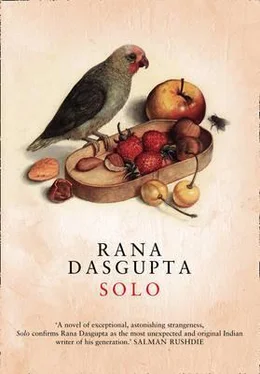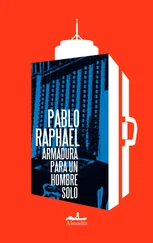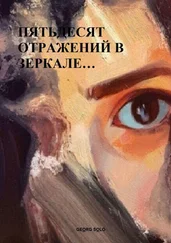The Gypsies always left without warning, so there would come a morning when he went out to find only a forlorn patch of ground, flattened and smoking, where dogs and pigs sniffed the leftovers. He would take out his handkerchief and wave it at the empty road — a gesture he had observed at railway stations and presumed grandiose.
Ulrich heard about gramophone records, in which men captured music and sealed it up, and he developed a fascination for them. The family did not possess a gramophone player, but this did not prevent him from wanting them, for it made him happy to arrange the records around his room like talismans. In those days there were few gramophone records available in Sofia, and Elizaveta therefore discovered a means of appeasing her son when they set off for journeys abroad. His favourite place on earth became Herr Stern’s Odeon record shop on the Grande Rue de Pera in Constantinople, where it was possible to listen to records in an enchanted room festooned with rugs and paintings.
It was Herr Stern who introduced Ulrich to the music of Cemil Bey, the great Turkish tanbur player, and who expanded his tastes to include the Armenian and Greek musicians, and singers from Egypt. Together they discussed music, and innovations in recording equipment, and news from the big companies who manufactured Ulrich’s delights — Odeon from Germany, Gramco from England, Baidaphon from Lebanon and Victor from America.
‘Is Odeon the very best company, Herr Stern?’ he liked to ask.
‘Odeon certainly has a very great range,’ replied Herr Stern, without condescension. ‘In our part of the world, they have recorded many more musicians than the others. Many excellent masters who were only known in their own small towns until a few years ago — now Odeon has made them into celebrities that you and I can listen to in our homes.’
‘But Odeon invented the double-sided record, and now all the others have copied them. So they must be the best!’
Herr Stern laughed.
‘Perhaps you’re right!’
‘Will someone invent a triple-sided record some day, Herr Stern?’
Ulrich was full of questions, but he chose not to ask why his own family did not possess a gramophone player, when modern brass horns had begun to bloom proudly in all the other houses they visited in Sofia. There was an evening when his father, increasingly irritated by the piano exercises of the girl in the adjoining house, suddenly banged down his spoon and appealed furiously: ‘Can that child not be made to stop?’ Other things added up along the way: the absence of musical instruments and Sunday afternoon concerts. Ulrich noticed that his mother’s singing voice fell silent when his father was around, and he began to sense in her a philharmonic sadness, looming like the outsized shadows in the modern paintings they saw on their visits to Vienna.
He was therefore surprised when his mother announced, during one of his father’s absences, that she wished to buy him a violin. He knew it was an assault on the household’s unspoken rules.
He went with her to the violin maker’s shop, and of course it was the climax of all his hopes: the gloomy room where rows of ruddy instruments were hung, redolent of wood and varnish. The violin maker played on them so Ulrich could judge the tone, the children’s half-size instruments tucked like toys under his enormous beard. Ulrich chose the one that was the most beautiful of all. Elizaveta was delighted, and she said to the violin maker, ‘Please just show him how to put his hands. He doesn’t have a teacher yet.’ So the man crouched behind Ulrich and operated his hands like a puppeteer, supporting the instrument and moving the bow, and Ulrich felt it was all much more difficult than he had imagined.
He threw himself into his violin practice. Mealtimes and lessons became inconveniences, and all his other pursuits were forgotten. Lacking a teacher, he studied photographs of violinists to see how they positioned their fingers, and he invented exercises to make his movements more assured. When the Gypsies next came into town, Ulrich ran with his violin, and pestered them for advice and demonstrations. He studied their performance with the attentiveness of a fellow musician. By the time they left, he was confident that the mysteries of music would not resist him, and he would play his violin as well as any human being. He told himself, ‘I am one of them.’
‘Do you think that Father will allow me to take lessons?’ he asked his mother doubtfully.
‘I think when he sees how much progress you have already made on your own, it will be impossible for him to refuse.’
‘Really?’ Ulrich asked, unconvinced.
‘Why not?’ she said, with a hint of evasion. ‘Why don’t you give a concert for him when he returns? He will be amazed at what you have achieved.’
Given his father’s love of all things Viennese, Ulrich decided to prepare a waltz that was often performed by the orchestra in the Shumenska restaurant opposite their house. He listened at the restaurant window until he had memorised it, and then began to reproduce it on his own instrument. He practised it until every note was perfectly sculpted for his father’s return.
On that evening, he set up the drawing room as a concert hall, with two armchairs for his parents, and an upturned chest as a podium. He put on a little black suit, and took a bow tie from his father’s dressing room. When his preparations were complete, he summoned his audience and sat them down. After a few vigorous swipes of his bow in the empty air, he began.
Ulrich’s eyes were set on his father, who sat folded in one half of his armchair. He saw the lines gathering on his father’s forehead, and he watched the tips of his moustache rise to meet them. He thought of a stormy tangle of telegraph wires, and a flock of birds above the bars of lowered railway barriers. He thought of a set of photographs he had once seen in a bookshop, which showed the expressions induced in mental patients by the application of electric currents to the various muscles of the face. He thought of a day when he had posed with his parents in the sunlight for a photograph in front of the opera house in Vienna, the folds of his mother’s parasol ticklish against his bare legs, and his father said, ‘If only we had been conquered by the Austrians, and not by the Turks, we would have had some of this Enlightenment for ourselves,’ and Ulrich had wondered if he was talking about a kind of cake. He thought of anything but the music, and, in the middle of the waltz, a great buzzing filled his ears, and his playing simply tailed off.
His bow caught a violin string awkwardly as he lowered it, and there was a catastrophic plink . And the family sat once again in a silence punctuated only by the funereal bark of the crows outside.
His father seized the violin from Ulrich’s hand, and brandished it at his wife like a meat cleaver.
‘You bought this for him? Haven’t we talked about this before?’
His anger raised him up, and he circled the room.
‘You won’t do this, my son! I won’t have you waste your life. Musicians, artists, criminals, opium addicts … You’ll end up poor and disgraced. I won’t have it!’
As he threw the violin into the fire, Ulrich’s mother was already sobbing, and, when the sparks flew up with the impact, she howled with grief and ran from the room.
Ulrich, still holding his listless violin bow, joined his father in contemplating the incendiary demise of his instrument. He noticed that the varnish burned differently from the wood underneath — more furious, and almost white — while the copper from the bass string sent a streak of green through the conflagration. The mahogany did not burn fully, and a charred rack was left behind when the fire died down later.
Читать дальше
Конец ознакомительного отрывка
Купить книгу












